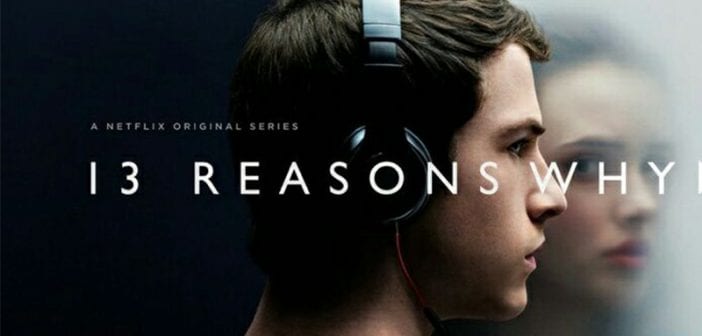In a recent interview, an actor from the hit Netflix series “13 Reasons Why” hinted that the upcoming
third season might feature a storyline that includes abortion. Actor Justin Prentice, who plays the
character Bryce in the Netflix drama, suggested in interviews with Entertainment Weekly and
Entertainment Tonight that the show might explore abortion in a plotline involving his character. As
Katie Yoder of NewsBusters noted, Prentice’s discussion of the show came in May but received little
comment in the media.
“13 Reasons Why,” based on a 2007 novel, follows a group of high school students surrounding the
suicide of a classmate. The deceased student, Hannah Baker, leaves a box of thirteen tapes explaining
why she took her own life, hence the name of the show and the premise of the 13-episode first season.
At the end of the second season, viewers discover Bryce’s girlfriend, Chloe, is pregnant. Prentice told
the entertainment news outlets, “Realistically, Bryce comes from a powerful family, and they have ways
of making things just kind of disappear.” When interviewers asked directly if the show might address
abortion, he answered affirmatively. Coupled with his suggestion of disappearing, abortion, in which
the preborn child disappears after a violent death, seems a foregone conclusion.
We should not be surprised to find “13 Reasons Why” incorporating another anti-Life theme into a dark,
anti-Life drama aimed at young teens. Billed as a realistic show that helps teens discuss tough issues,
the show has faced harsh criticism from concerned parents and mental health professionals for
glamorizing suicide. Due to the graphic and detailed content related to suicide on a show aimed at
young teens, mental health professionals warned that at-risk youth could be tempted to mimic the
show.
These alarming concerns are far from baseless: a study published after the first season showed that
internet searches related to suicide increased dramatically. Tragically, these are not all simply queries of
curiosity. Previous studies have shown that internet searches reflect actual suicides. Concerned child
psychiatrists have spoken out after children as young as 12 have cited “13 Reasons Why” following
attempted suicides.
The grieving family of a young teen, Anna Bright, who died after watching the show is also sharing their
story to raise awareness about the dangers of “13 Reasons Why.” Rebecca Davis of the American Family
Association Journal wrote about the many jarring similarities between Hannah’s suicide on the show and
Anna’s suicide. She adds,
The major difference: Hannah is fictional and her decision was played out as part of a script; it
was reversible because it was fake. Anna’s decision to end her life was real, the outcome
permanent, and the effects on her family devastating.
These and other issues prompted the Parents Television Council to condemn Netflix for renewing the
show for another season. Despite this evidence of harm inflicted or at least exacerbated by the show,
Netflix has largely ignored the criticism. With so little concern for human lives threatened by a fictional
storyline, we should not be surprised that Netflix is likely to glamorize the taking of preborn lives, too.
The threat to innocent human lives is not unique to anti-Life dramas like “13 Reasons Why.” This
month, anti-Life television producers called for more casual treatment of abortion in network television
and more on-screen abortions. In recent years, television shows have featured unprecedented
portrayals of abortion, always, of course, carefully sanitized and glamorized. As evidence by the recent
discussion, we can expect that trend to continue. As nations increasingly accept assisted suicide as a
valid “choice” for people suffering fromdepression,anorexia, andautism, we can expect more
portrayals of suicide as well.
Pro-Life viewers should not allow media elites to control the cultural narrative with the insidious
endorsement of suicide and abortion. Each and every human Life has value from conception to natural
death, and we must seek out television that reflects that. If we settle for anything less, human lives, like
Anna Bright and countless preborn babies, are at risk.

